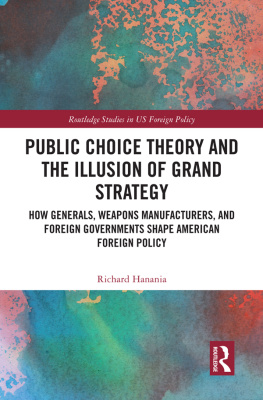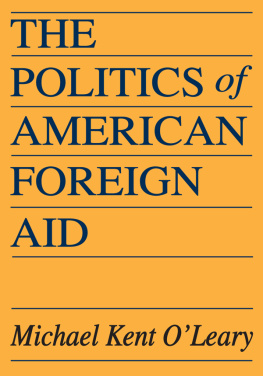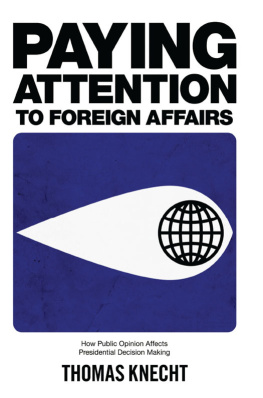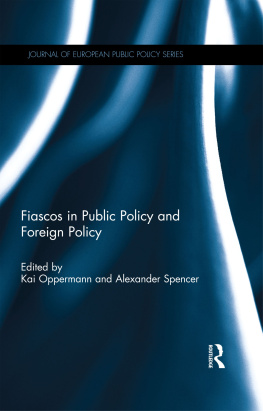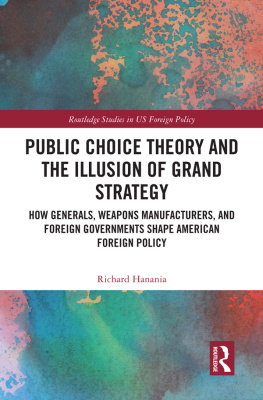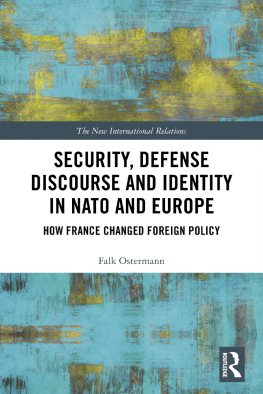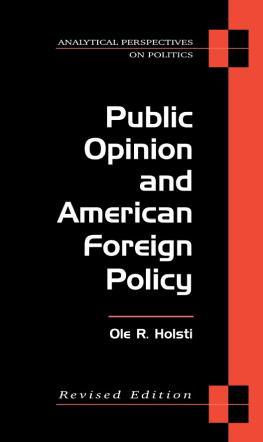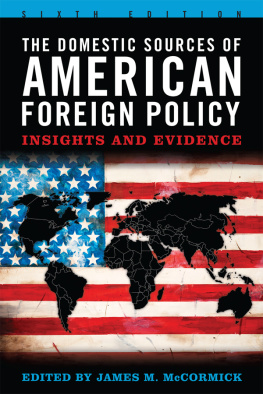
Public Choice Theory and the Illusion of Grand Strategy
This book argues that while the US president makes foreign policy decisions based largely on political pressures, it is concentrated interests that shape the incentive structures in which he and other top officials operate.
The author identifies three groups most likely to be influential: government contractors, the national security bureaucracy, and foreign governments. This book shows that the public choice perspective is superior to a theory of grand strategy in explaining the most important aspects of American foreign policy, including the war on terror, policy toward China, and the distribution of US forces abroad. Arguing that American leaders are selected to respond to public opinion, not necessarily according to their ability to formulate and execute long-terms plans, the author shows how mass attitudes are easily malleable in the domain of foreign affairs due to ignorance with regard to the topic, the secrecy that surrounds national security issues, the inherent complexity of the issues involved, and most importantly, clear cases of concentrated interests.
The book will be of interest to students and scholars of American Studies, Foreign Policy Analysis and Global Governance.
Richard Hanania is the President of the Center for the Study of Partisanship and Ideology and a Research Fellow at Defense Priorities. He was formerly a Research Fellow at the Saltzman Institute of War and Peace Studies at Columbia University, received his PhD from the University of California, Los Angeles, and is a graduate of the University of Chicago Law School. Richard has published academic works that contribute to the studies of American foreign policy, international law, political psychology, the role of nuclear weapons in international politics, and civil war.
Routledge Studies in US Foreign Policy
Series Editors:Inderjeet Parmar, City University, and John Dumbrell, University of Durham
This new series sets out to publish high-quality works by leading and emerging scholars critically engaging with United States Foreign Policy. The series welcomes a variety of approaches to the subject and draws on scholarship from international relations, security studies, international political economy, foreign policy analysis, and contemporary international history.
Subjects covered include the role of administrations and institutions, the media, think tanks, ideologues and intellectuals, elites, transnational corporations, public opinion, and pressure groups in shaping foreign policy, US relations with individual nations, with global regions and global institutions and Americas evolving strategic and military policies.
The series aims to provide a range of books from individual research monographs and edited collections to textbooks and supplemental reading for scholars, researchers, policy analysts and students.
Public Choice Theory and the Illusion of Grand Strategy
How Generals, Weapons Manufacturers, and Foreign Governments Shape American Foreign Policy
Richard Hanania
US Power and the Social State in Brazil
Legal Modernization in the Global South
Jlio Cattai
The United States and Greek-Turkish Relations
The Guardians Dilemma
Spyros Katsoulas
Rhetoric, Media, and the Narratives of US Foreign Policy
Making Enemies
Adam Lusk
For more information about this series, please visit: www.routledge.com/series/RSUSFP
Public Choice Theory and the Illusion of Grand Strategy
How Generals, Weapons Manufacturers, and Foreign Governments Shape American Foreign Policy
Richard Hanania

First published 2022
by Routledge
2 Park Square, Milton Park, Abingdon, Oxon OX14 4RN
and by Routledge
605 Third Avenue, New York, NY 10158
Routledge is an imprint of the Taylor & Francis Group, an informa business
2022 Richard Hanania
The right of Richard Hanania to be identified as author of this work has been asserted in accordance with sections 77 and 78 of the Copyright, Designs and Patents Act 1988.
All rights reserved. No part of this book may be reprinted or reproduced or utilised in any form or by any electronic, mechanical, or other means, now known or hereafter invented, including photocopying and recording, or in any information storage or retrieval system, without permission in writing from the publishers.
Trademark notice: Product or corporate names may be trademarks or registered trademarks, and are used only for identification and explanation without intent to infringe.
British Library Cataloguing-in-Publication Data
A catalogue record for this book is available from the British Library
Library of Congress Cataloging-in-Publication Data
A catalog record has been requested for this book
ISBN: 978-1-03-212179-6 (hbk)
ISBN: 978-1-03-212180-2 (pbk)
ISBN: 978-1-00-322346-7 (ebk)
DOI: 10.4324/9781003223467
Typeset in Times New Roman
by Newgen Publishing UK
Contents
Illustrations
Figures
Table
Introduction
DOI: 10.4324/9781003223467-1
In making his famous case for the existence of a creator, English clergyman William Paley asked the reader to imagine walking along a beach and coming across a watch. Had it been a stone, one might believe that it had lain there forever, and such a conclusion would not necessarily be absurd. Yet, for a watch:
the inference, we think, is inevitable, that the watch must have had a maker: that there must have existed, at some time, and at some place or other, an artificer or artificers who formed it for the purpose which we find it actually to answer.
The atheist Richard :79) argued that Darwins discovery of natural selection had rendered the clerics point moot. Living organisms had not been designed to serve some greater plan. Rather, blind mutations had, over billions of years, created beings that, through a winnowing process that eliminated those that could not survive and reproduce, gradually evolved into the life forms we see today. Healthy ecosystems exist in an equilibrium, allowing a variety of species whose existences depend on one another to maintain somewhat constant numbers, giving further appearances of design beyond the complexity of the individual organism.
Whatever one thinks of this theological debate and the argument from design, it is clear that well-functioning systems can exist without anyone consciously designing or managing them, or having any larger purpose. We use the term global economy to refer to the systems of production and consumption that emerge from decisions made by billions of people across the world given constraints in the form of human nature, culture, and resource limitations, and the regulations that they live under. Culture and language similarly exist as phenomena in their own rights without conscious design. A fallacy of conspiracy theorists is that they see intentionality where it does not exist, attributing economic and other outcomes to the plotting of nefarious actors ().
This book argues that the study of American grand strategy suffers from the same fallacy as arguments that seek to understand any other complex system by appealing to a designer, when the topic of interest can better be explained as emerging from simpler phenomena. Many works have sought to explain American behavior abroad as consistent with one strategy or another. Great powers are said to be naturally suspicious of each other and thus destined to be rivals ().
Next page
